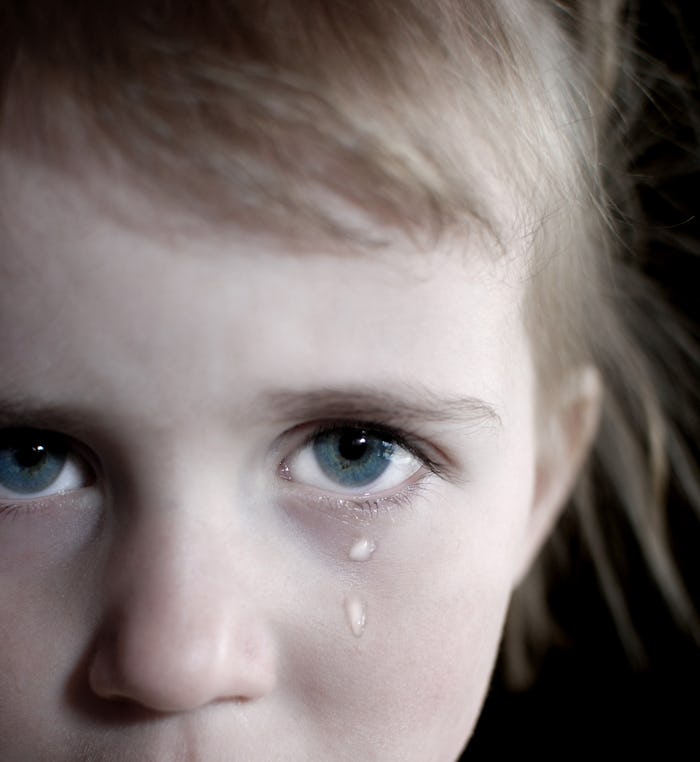
Can Toddlers Be Depressed? Yes, & It's Bigger Than Just The Terrible Twos
There are a lot of things to worry about when you're the parent of a toddler. Did I close the lid to the toilet? When are they going to start eating something other than hot dogs? Mickey Mouse Clubhouse isn't on TV right now, dear God, is the whole world going to explode? You know — normal stuff. But if you notice your toddler seems uninterested in the world around them, has little to no energy, and doesn't seem to find joy in the world like other kids their age, you may be asking, "Can toddlers be depressed?"
I know — it sounds harsh. Some kids are just sad or feeling blah that day, right? But toddler depression is actually very real, just like depression in adults and adolescents, according to the Centers for Disease Control and Prevention.
The American Academy of Child and Adolescent Psychiatry noted that about five percent of children and adolescents in the general population suffer from depression. Although it doesn't always look like the depression that adults and older children suffer from, it's still very much real and can be characterized by frequent sadness, tearful moments, crying, decreased interest in activities, hopelessness, persistent boredom, low energy, frequent complaints of physical illnesses like headaches or stomachaches, increased irritability, anger, or hostility, and extreme sensitivity to rejection or failure.
According to U.S. News and World Report, depression in toddlers isn't a well-known issue. In fact, some pediatricians may not even be privy to the situation. When you think about the symptoms of depression and the general behavior of a toddler, the lines can be blurred. Is your child crying because they are sad and feel hopeless or because the iPad only has five percent battery left? The trick is to recognize when your child feels excited and when they don't. For example, a toddler throwing a fit because they don't want anything to eat other than cookies isn't depression. But a child who shows no enthusiasm for their favorite treat or activity, and that attitude is consistent, could be depressed.
A 2009 study on depression in toddlers and preschoolers decided to focus on children between the ages of 3 years old to 6 years old. Previously, studies had only been conducted on school-age children. The study found that not only were children as young as three years old suffering from depression, but depression that young was very similar to childhood depression — it is not a transitional, developmental stage. It is consistent and/or recurring and deserves attention.
Again, because toddlers are such a whirlwind of personality and they don't have much of an emotional stick to measure up to, it can be hard to determine if your toddler is depressed or just a 2-year-old. Parenting suggested that you have to pay attention to when your child is just sad because of a particular situation or if they are consistently unhappy. A toddler whose sadness disappears from activity to activity or whose unhappiness comes and goes, depending on the incident, is most likely just a toddler. But if your child seems to have a gloom hanging over them, making them feel uninterested in life, and it remains consistent, you may want to seek out professional help to get your little one the care they need.